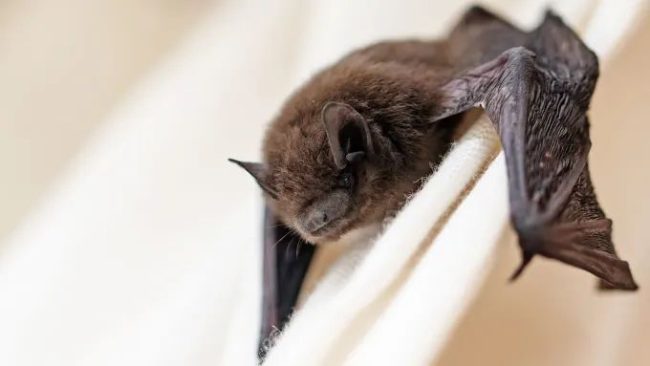Scientists at the Wuhan Institute of Virology in China have discovered a new lineage of coronavirus in bats that can enter human cells in a similar way to SARS-CoV-2, the virus responsible for Covid-19.
However, experts stress that the virus, named HKU5-CoV-2, has not been detected in humans and does not currently pose a public health concern.
The newly identified virus was found in anal swab samples from a bat of the genus Pipistrellus, and laboratory experiments confirmed it could infect human cells. Like SARS-CoV-2, it uses the ACE2 receptor to enter cells. It belongs to the same coronavirus family as the virus that causes Middle East respiratory syndrome (MERS).
Despite its ability to infect human cells in lab settings, the US Centers for Disease Control and Prevention (CDC) stated there is “no reason to believe it currently poses a concern to public health.”
The agency added that it would “continue to monitor viral disease activity and provide important updates to the public.”
Dr. Amira Roess, a professor of global health and epidemiology at George Mason University’s College of Public Health, urged against panic.
“Even the researchers themselves point out that this should not cause panic,” she said. She emphasised that such research is crucial, adding, “It helps us understand what happens in the event that this does spill over and pose a risk. It’s good to get ahead of that.”
While the discovery has drawn attention due to its origin at the Wuhan lab—where questions about the origins of Covid-19 persist—scientists note that HKU5-CoV-2 does not infect cells as efficiently as SARS-CoV-2.
ALSO READ: Influence of WASH practices, COVID-19 on residential property value in Oyo State
Dr. Alex Greninger, a professor of laboratory medicine and pathology at the University of Washington Medical Center, downplayed concerns. “There are probably a lot of coronaviruses circulating in bats that can enter human cells,” he said, noting that other coronaviruses, such as 229E, NL63, OC43, and HKU1, are already endemic and cause illnesses ranging from mild colds to pneumonia.
Dr. Phoebe Lostroh, author of Molecular and Cellular Biology of Viruses, criticised exaggerated fears surrounding the discovery, particularly in light of the US reducing its involvement in global health efforts. “I think we ought to be a lot more worried about problems like avian flu and its impact on cows and kitties and all sorts of other mammals than this new coronavirus that was isolated from a population of bats in China,” she said.
Roess highlighted the importance of global scientific collaboration in monitoring potential viral threats. “It’s sad to think about how we’re separating ourselves from the global public health world,” she said, referencing the US withdrawal from the World Health Organization and the cessation of USAID health program funding under President Donald Trump. “This highlights to me why it’s so important to do global work and to do these global collaborations over the long haul.”
She also reminded the public to exercise caution around wildlife. “There’s other things that bats carry that can be very problematic for people,” she said. “So respect these wild animals, don’t interact with them too much, because you could end up hurting them and yourself.”
ALSO READ TOP STORIES FROM NIGERIAN TRIBUNE




